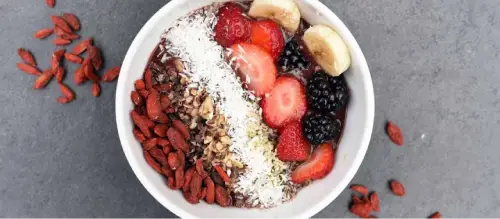Blog
WHAT IN THE WORLD IS GLUTATHIONE?!

WHAT IN THE WORLD IS GLUTATHIONE?!
What in the world is Glutathione?!
Could there be one supplement that can tackle aging, cancer, Alzheimer’s disease and the other chronic diseases plaguing America and other parts of the western world? One possibility is glutathione.
You can think of glutathione as the body’s master antioxidant, or the “Mother of All Antioxidants” as prominent functional medicine practitioner Dr. Mark Hyman calls it. Ensuring you have adequate levels may just improve your health and longevity. Glutathione is a master detoxifier and may be a nutrient that undergoes a tremendous amount of research in the next couple years.
What Is Glutathione?
Structurally, glutathione is a three amino acid peptide that lives within the cell and takes part in many cellular processes. The body synthesizes glutathione internally with the amino acids glycine, L-glutamic acid and L-cysteine, so it is not considered essential.
It has the ability to regenerate itself, so you do not have to create more every time you need it. It also helps to recycle other key antioxidants, such as vitamins C and E. However, when you are under significant oxidative stress or otherwise have exhausted your internal stores of this antioxidant, it may be beneficial to supplement.
Oxidative stress may be the culprit of the aging process as cells degenerate over time. Glutathione is a key player in the anti-oxidation process.
What Are the Benefits?
Glutathione plays key roles in the body, including metabolism, protection against oxidative damage, synthesizing of proteins, DNA synthesis and detoxification. It may also play a role in supporting your immune system and protect against environmental toxins and cancers.
The right balance of glutathione is also important for brain health. One 2011 study published in Acta Neuropathology found that both deficiency and an overproduction of this antioxidant were both linked to neuron depletion associated with Parkinson’s disease.
What Is the Absorption and Bioavailability?
The bioavailability of oral supplemental glutathione is low. It is often broken down into the amino acid precursors in the GI tract. Many people turn to precursors when they supplement instead. Some common ones include:
- NAC: N-acetyl cysteine
- B vitamins (especially folate, B6 and B12)
- Selenium
- Colostrum
- Vitamins C and E
- Sulfur-rich foods (such as garlic, onions and broccoli and other cruciferous vegetables)
- Whey protein
- Milk thistle (silymarin)
- Alpha-lipoic acid
For increased bioavailability and absorption of glutathione, try sublingual glutathione, which you absorb under the tongue, or directly to the bloodstream through IV (intravenous) delivery. Some research shows glutathione fast acting in the blood with a half-life of only 30 minutes. Exercise can also help to boost glutathione levels.
Who Is Using It?
Many turn to glutathione to prevent and treat chronic diseases, especially when there is an element of oxidative involved in the pathogenesis. Examples include:
- Diabetes
- Alzheimer’s disease
- Dementia
- Cancer
- Heart Disease
- Aging
- Autism
- Male infertility
- Neurodegenerative disorders
- Inflammatory bowel disease (n.g. Ulcerative Colitis and Crohn’s disease)
It also plays a role in cellular metabolism, which creates energy, so having more glutathione can lead to better efficiency of your energy production. It also protects the mitochondria, the part of the cell involved in energy production, from the free radicals produced. Damaged or unhealthy mitochondria have been related to a variety of chronic disease, including those listed above.
Testimonial
Love the effects of glutathione! I have struggled with a chronic disease for years and weekly IV infusions and IV glutathione has drastically changed my life. I was constantly in pain, brain fog, and fatigue for years and years. Now I feel like I have taken charge of my life and can do the things I enjoy – surfing! Thank you LIVV and thanks for helping me get back to the things I love.
Brittany L.
How Does It Work?
During many body processes, including detoxification and cellular metabolism, charged particles are released. Although they have some beneficial effects, too many of these free radicals create oxidative stress on the body. Glutathione reduces the charged particles to prevent the damage.
Having sufficient levels of glutathione also ensures it can be used in its other roles in the body mentioned above, such as recycling vitamins C and E and detoxification.
What Is the Connection Between Antioxidants and the Aging Process?
Studies have found that higher markers of oxidative stress correlate with advanced age and many chronic diseases, especially those related to age such as Alzheimer’s disease. This may be due to an accumulation of dysfunctional mitochondria due to oxidative damage that affects cellular lipids, proteins and DNA. Antioxidants like glutathione have the potential to slow down the aging process and prevent these diseases through mitigating the oxidative damage.
The aging process may be attributed to increased oxidative stress from the environmental factors that we can control (air, water, and food). As we utilize oxygen within each cell – oxygen is recycled and transforms into oxidative stress to be discarded by the body. Glutathione is naturally produced by the liver but exogenous glutathione may be needed to combat the millions of stressor that the human body endures in this modern day society.
Dr. Jason Phan NMD – LIVV Natural Health | Naturopathic Medical Doctor specializing in IV Vitamin Therapy, PRP (platelet rich plasma)/Regenerative Medicine, Lifestyle Medicine, and Optimal Living.

